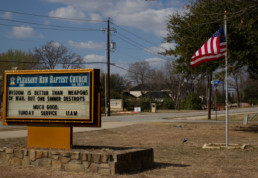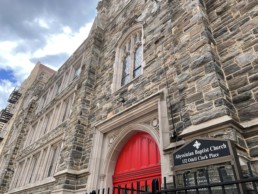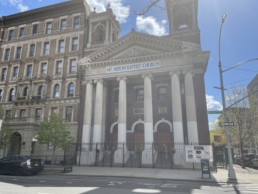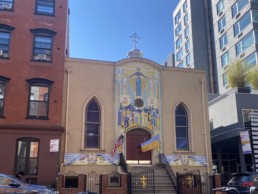How the Synagogue Hostage Crisis Changed the DNA of Colleyville, Texas
As Congregation Beth Israel reopens, interfaith efforts deepen and houses of worship intensify security measures, adapting to “a more violent world.”
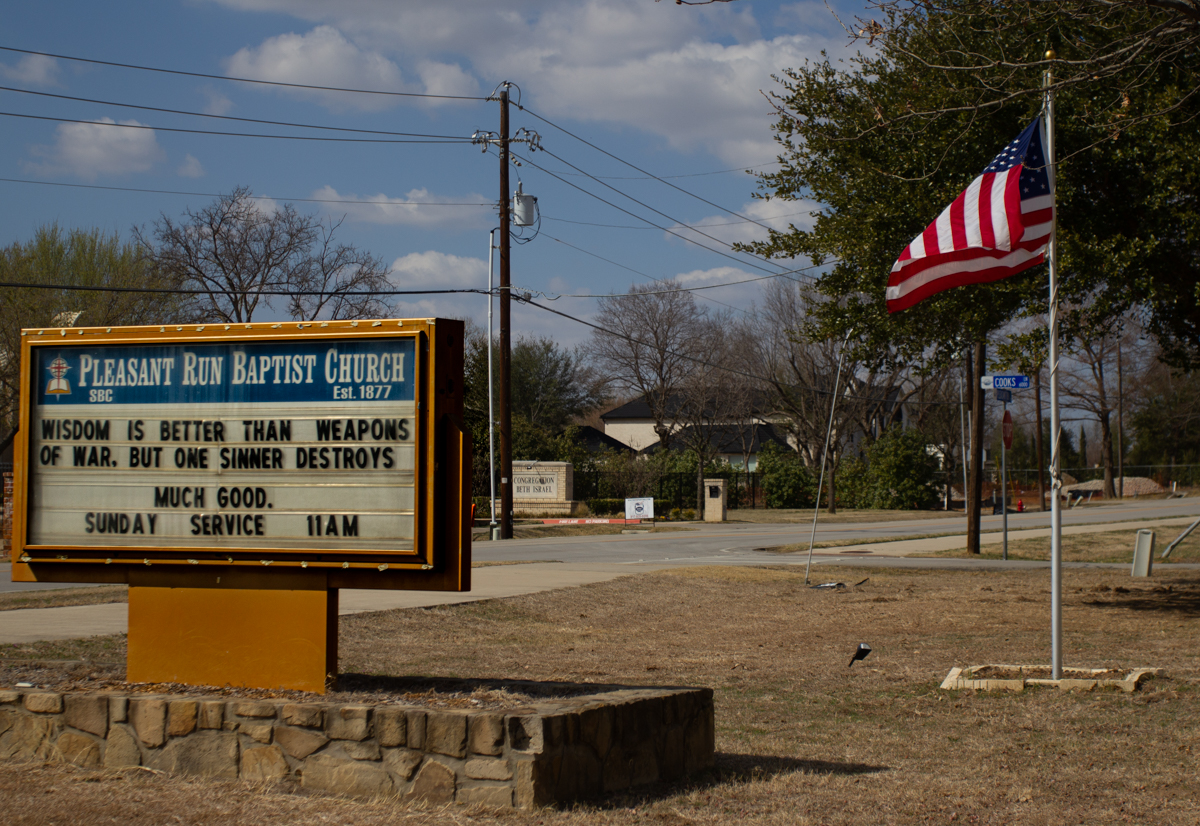
COLLEYVILLE, Texas – On Jan. 15, Colleyville, a small suburb just miles from the Dallas-Fort Worth Airport, was thrust into the national spotlight as a gunman, armed with a pistol, took four people hostage for 11 hours in the Congregation Beth Israel synagogue. All four hostages escaped unharmed before the suspect was shot, authorities said. The FBI labeled the incident as a terrorist act and hate crime.
But this acutely religious North Texas town with 28 houses of worship in its 13 square miles, did not retreat in fear and suspicion. Instead, it reconceived of the terror attack as a beacon of hope. Since the live-streamed standoff, religious leaders in Colleyville mobilized to ensure the safety of their believers and buttress the area’s robust interfaith system.
After nearly three months, the synagogue, which has been closed as a crime scene, is reopened to its 150 members on April 9. Since the incident, the congregation was hosted by the First United Methodist Church of Colleyville, one mile away. Now that it is back in its home, Congregation Beth Israel will have a police presence at every event. For Colleyville’s Jewish believers like Howard Rosenthal, former president of the Beth Israel Congregation, restarting services in the synagogue with reinstalled bulletproof windows feels like “moving forward.”
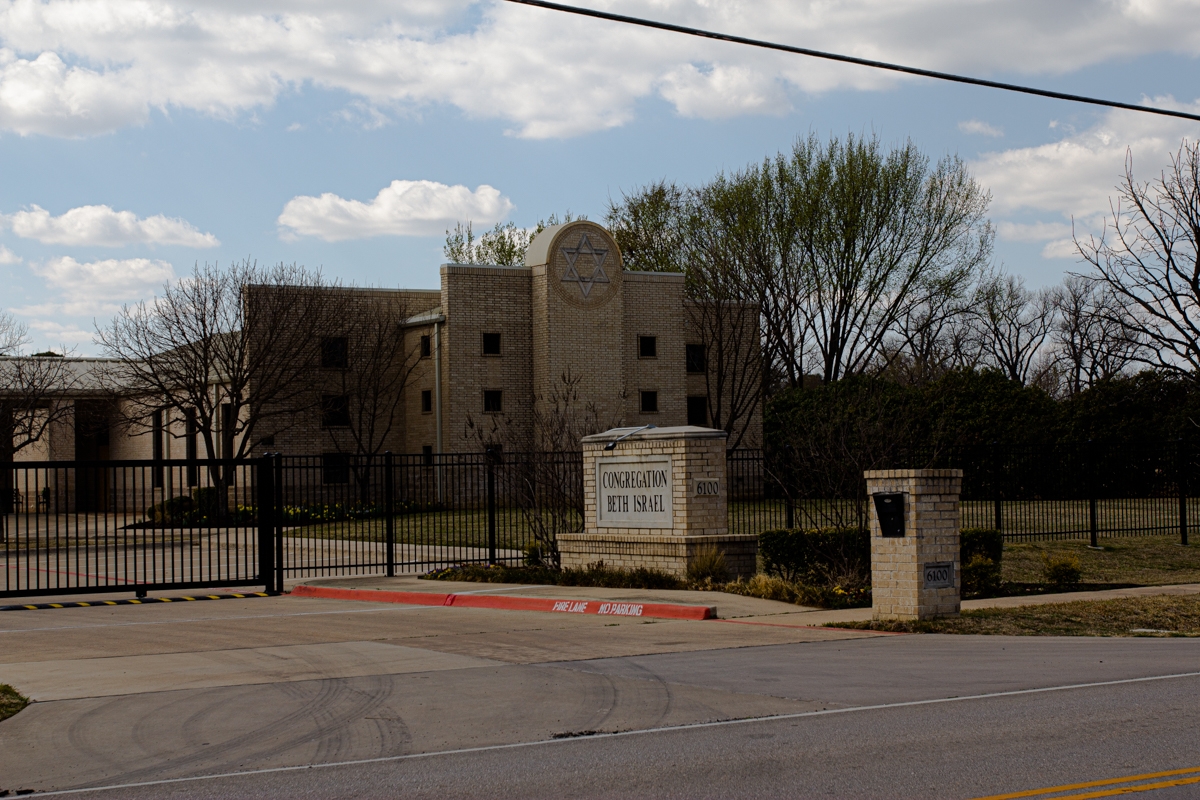
Interfaith activists in Colleyville, which is overwhelmingly comprised of Christians, said they want to set the record straight, referring to what they call the town’s mischaracterization in national press outlets. The scandals plaguing Dallas-Fort Worth have garnered media attention after the 2021 Capitol insurrection (which involved residents from DFW) and last year’s Critical Race Theory controversies at Colleyville public schools. Despite North Texas stereotypes, 21 religious community groups have been building interfaith bridges for four years under the umbrella of Peace Together, which was founded after racial and religious tensions unleashed at a 2017 “Unite the Right” rally in Charlottesville, N.C.
“We will have a safe, loving and committed community so we can go forward and not focus on the past,” said Rosenthal.
Having lived in DFW for 19 years, Rosenthal leads Peace Together and organized interfaith healing ceremonies after Jan. 15. Rosenthal was teary-eyed while recalling how interfaith leaders rushed in to help during and after the crisis.
As Rabbi Charlie Cytron-Walker of Congregation Beth Israel wrote in The New York Times:
“My congregation and I received an outpouring of love and support from strangers. If we begin with that love of the stranger, but offer it not in response to violence, but encouraged by empathy, we might just change our world.”
Everyone from Muslims to Catholics to Mormons stepped up. The Colleyville Texas Stake of The Church of Jesus Christ of Latter-day Saints, a member of Peace Together, has a deep respect for people who worship in different ways because Mormons have a history of persecution, said Leslie Horn, the Media Specialist at the church. Horn described Jan. 15 as a defining violation for her church. Still, the subsequent press coverage “missed a lot of the good,” she said.
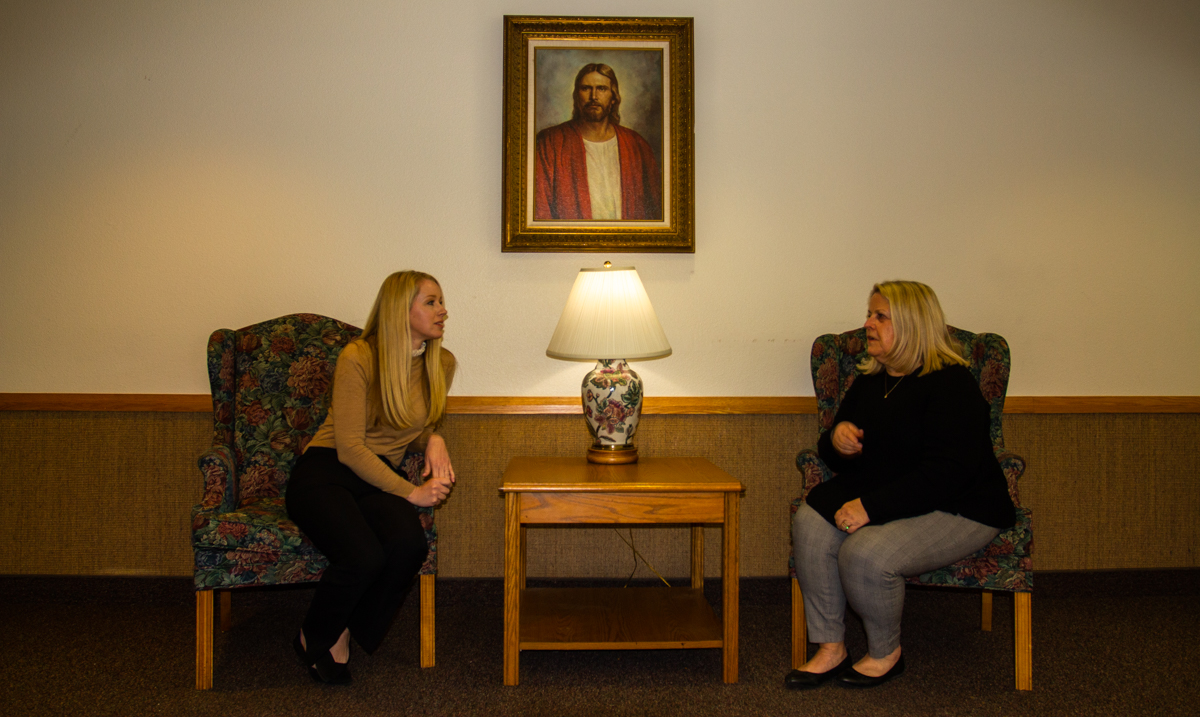
“In Texas, there tends to be this belief that we aren't diverse in thought, people and faiths,” Horn said. “But if you've spent any time living here, you quickly realize that’s not true. If you know anything about interfaith work, you know Colleyville is a leader.”
Horn said she could not fathom the juxtaposition of savagery in a sacred space. Horn, like so many religious observers in Colleyville, found herself in disbelief and kept asking herself, “Why Colleyville?”
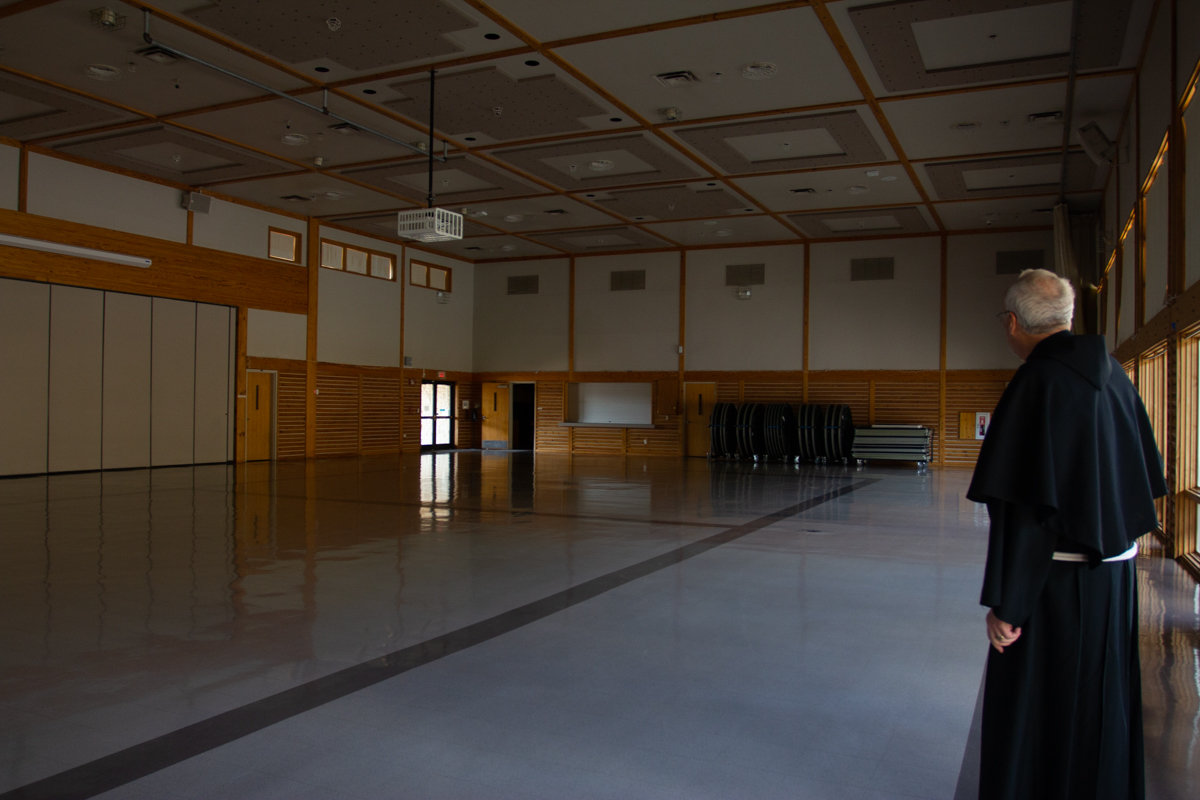
Rev. Michael Higgins, the senior priest at Good Shepherd Colleyville, shared Horn’s shock. Even though the standoff was “hectic and surreal,” Good Shepherd Colleyville jumped into action. For ten hours during the standoff, Higgins’ church, just one block away from the synagogue, hosted the press, the four spouses of the hostages and the local police. After the dust settled, Good Shepherd continues to seriously consider beefing up its security measures, said Higgins. Still, he refused to cancel Sunday services the next day, opting to pray for the town.
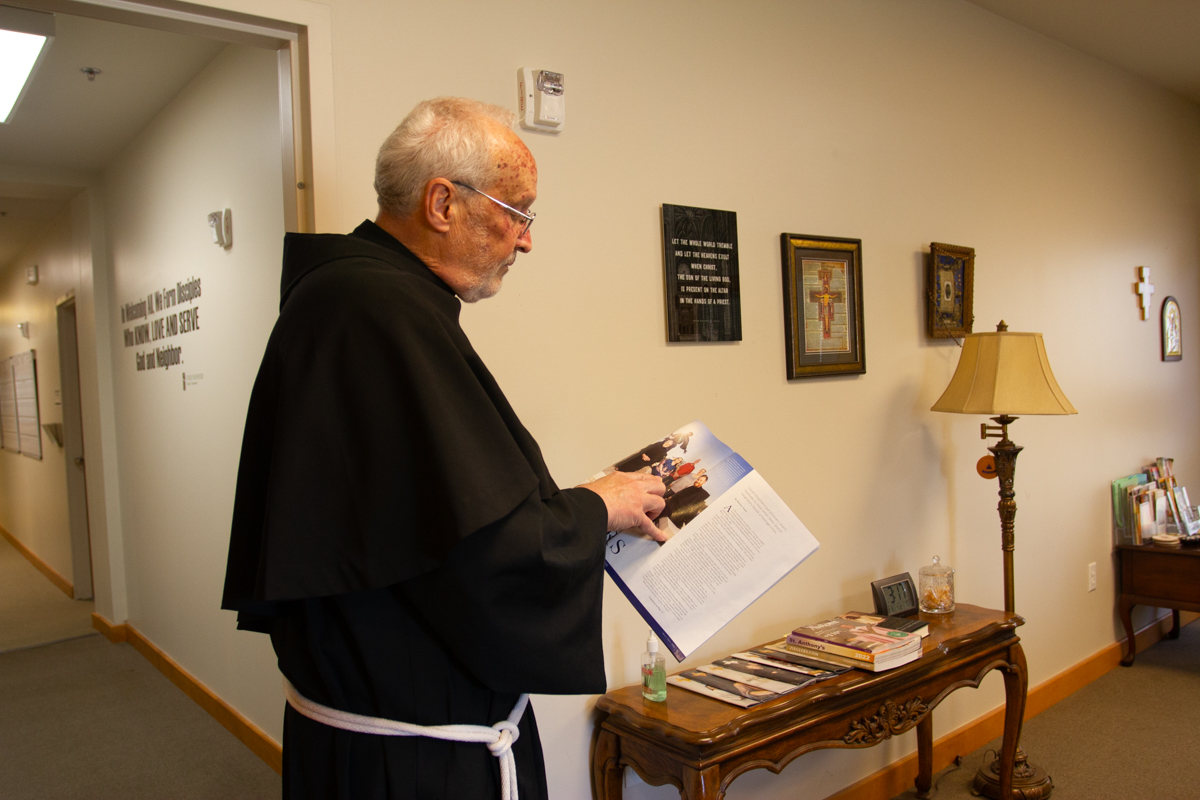
“Despite all the evidence to the contrary, God loves us,” Higgins said.
It is unfortunate that an event like this would be the catalyst for the country to be introduced to Colleyville. But January 15, Higgins said, was an immediate rallying of all faith traditions, which brought to light the reality of the tight community in Colleyville. Higgins has led the interfaith alliance in Colleyville since 2020.
“We were just trying to be of service,” Higgins said. “This shouldn't be special.”
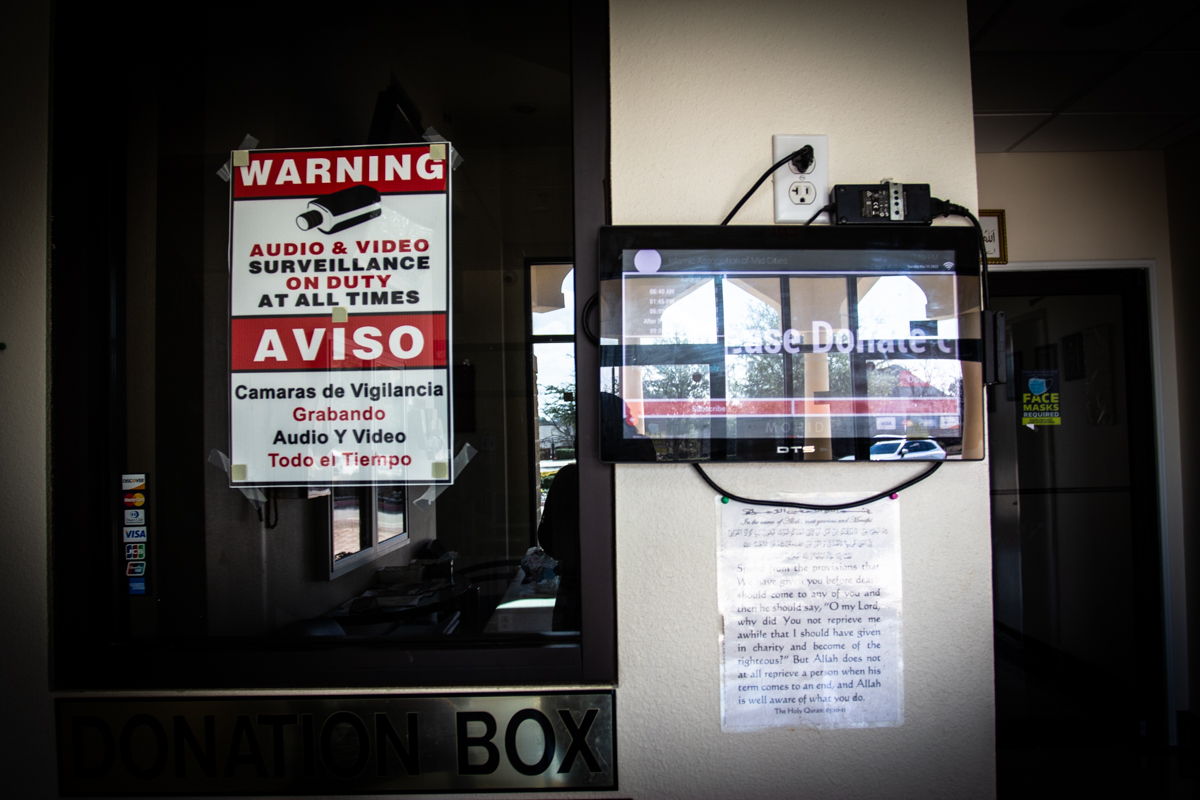
Abdul Rashid Khan, a founding member of Colleyville Masjid, said his house of worship is no stranger to the eerie sensation of looming danger. His gated mosque has had security since Sept. 11, 2001, and reactively increased its surveillance measures since Jan. 15. Khan, a friend to hostage Cytron-Walker and participant in interfaith meetings, said he could easily imagine a similar crime happening in his mosque. To cope and maintain hope, Khan has thrown himself into interfaith work.
“Our prophet Mohammed used to visit other religious spaces so that he could set an example of how his faith should be respected,” Khan said. “We follow that example.”
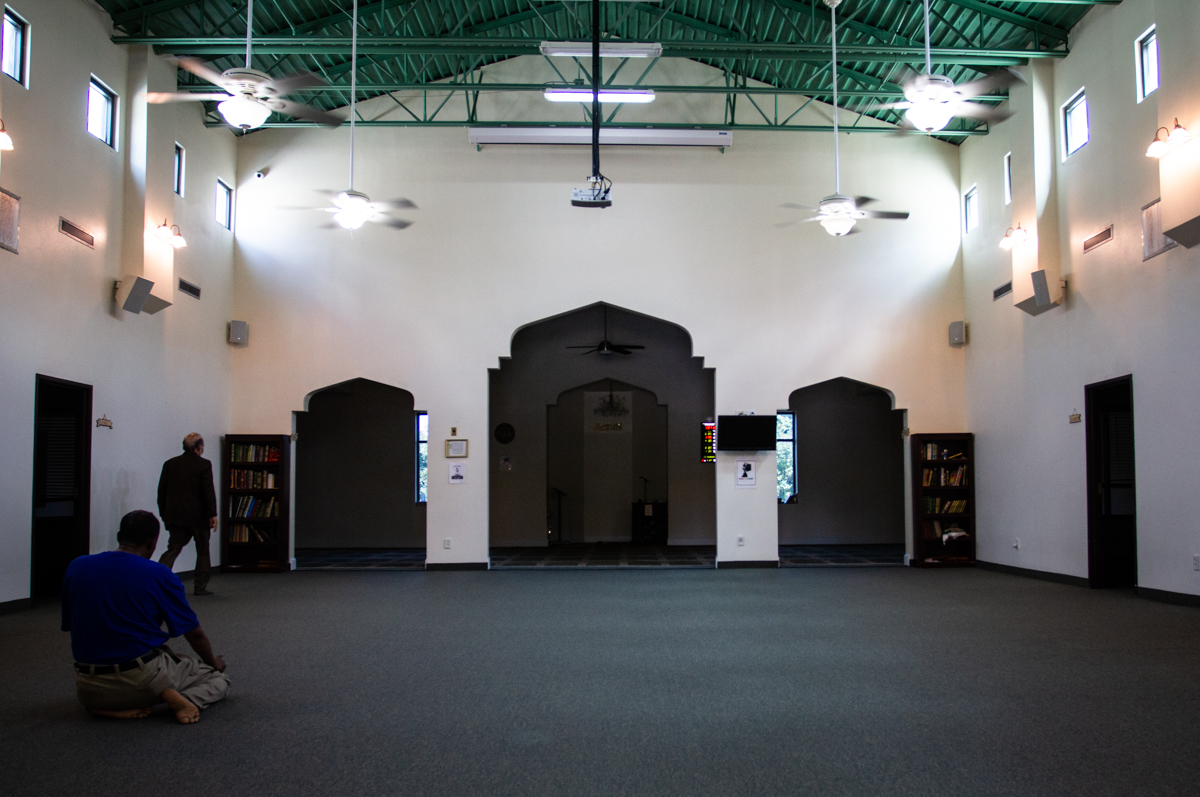
Katie Newkirk, a pastor at First United Methodist Church of Colleyville, reviewed her church’s safety policy after the “defining moment” of Jan. 15, installing new security systems and implementing training sessions for church staff. Still, she said Colleyville’s transformation in the past few months is twinged with optimism as local comradery has outshone religious differences.
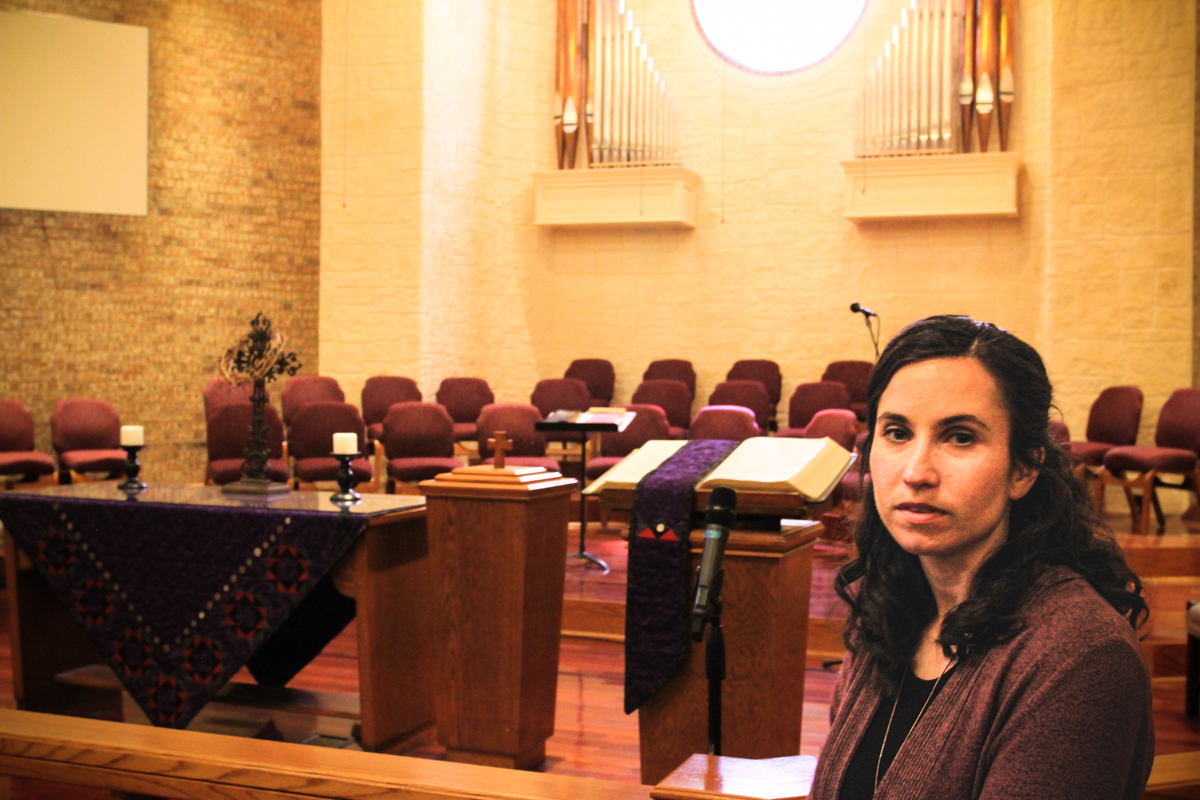
“It’s been a beautiful time to come together,” Newkirk said. “I don’t think God causes bad things to happen, but God brings good outcomes from messed up situations.”
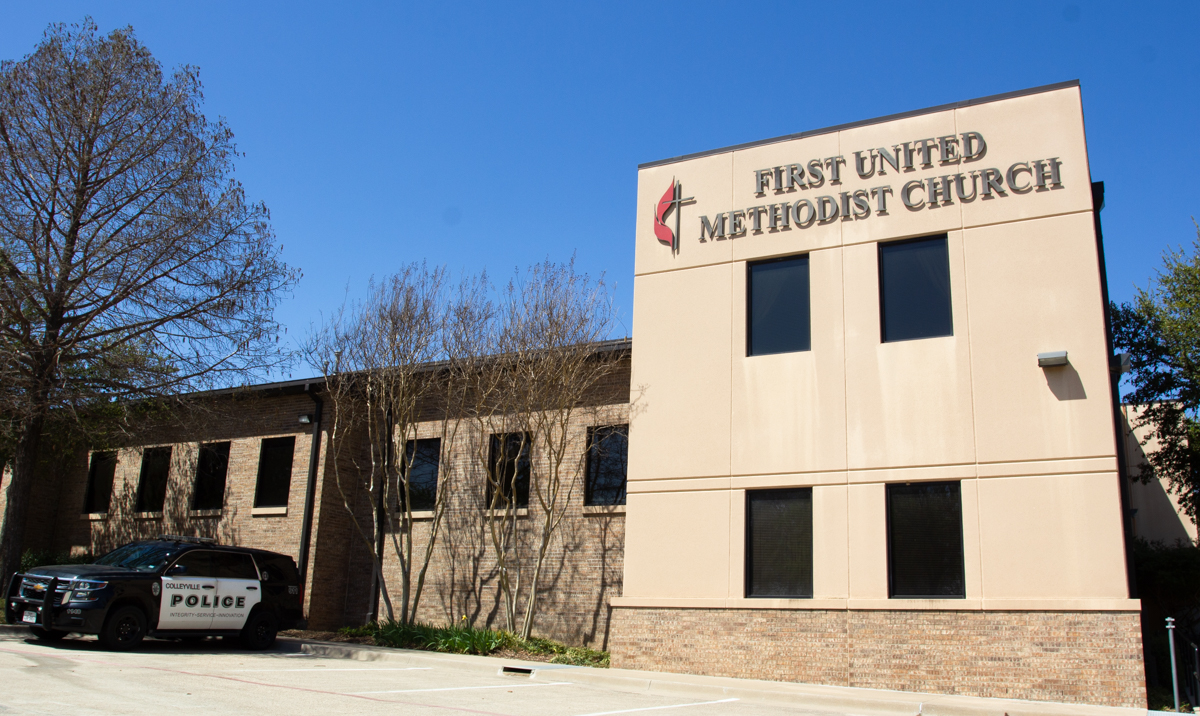
The Gospel Music of Abyssinian Baptist Church
Lift every voice and sing
Till earth and heaven ring
The 14-person chorus chanted lyrics from a book called African American Heritage Hymnal as they swayed together in perfect rhythm. Behind the pulpit, the piano, organ, guitar and drum ensemble, dressed in their black Sunday best, joined in as the embodiment of religious devotion.
May we forever stand
True to our God
True to our native land
The Rev. Dr. Calvin O. Butts III introduced the opening hymn on the first Sunday of Black History Month as the celebratory anthem for the African people. His church, Abyssinian Baptist in Harlem, was formed when a handful of African devotees broke away from the predominantly white First Baptist Church more than 200 years ago. On this Sunday, the sanctuary was decorated with traditional African brocade; a testament to the artistic creativity that defined a people.
“We have so much talent in this room,” said the reverend. “This is all a part of our great expression.”
The African American church has been using music to tell its story since its inception. At Abyssinian’s service, gospel music expressed what Bible verses may have not – the resilience and faith of Black America.
Butts led by singing a new song, while the Total Praise ensemble followed his cue, almost as if to represent the spirited Abyssinians themselves.
We have come this far by faith,
Leaning on the Lord,
“Everybody sing to the glory of God,” instructed the Rev. Dr. Raschaad Hoggard, preaching each lyric before the choir joined in. “Now let’s sing with conviction!
Trusting in His holy Word,
He's never failed us yet.
The rows of well-dressed men and women were joined together by the nostalgia of each verse and the spirituality of each word. The song served as its own kind of prayer, with a resounding message of safety in God’s care.
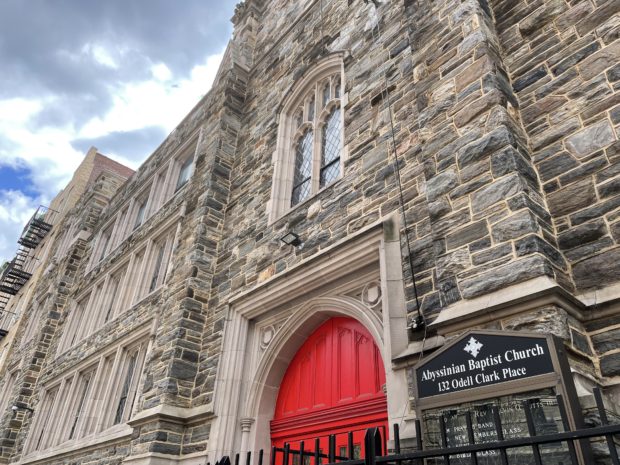
As the choir began their gospel rendition of Happy Birthday for all churchgoers with February birthdays, I saw masked worshippers hugging each other and posing for photographs. It seemed like their warm embrace was to make up for the past two years of isolation, and the music was what brought a familiar sense of community that they had been missing.
The pastor brought everyone back to their pews to start a sermon from Apostles 8:26. In it, he described the kings and queens of Ethiopia who were consistently underestimated, and who served as a lesson of the great successes Black people had found throughout time and oppression.
“The core of our people is our struggle,” he said.
A twinkling piano melody filled the silence between affirmative “mmms” and “Amens.” The long phrases felt deeply meditative, and his hands seemed to glide over the keys as he closed his eyes, entranced with what, or whom, he felt.
He’s got the whole world in His hands.
An operatic soprano performed the next solo to the crowd of enchanted worshippers. Some eyes were closed in prayer, some open in awe, with each person’s body swaying as part of a whole.
He’s got the whole world in His hands.
She sang the high notes with so much passion that it warranted a standing ovation, “yes ma’ams” and abounding claps.
“Thank you for encouraging our hearts,” said Reverend Hoggard. “That was masterful.”
I understood that music wasn’t just for the ears here. It was for mind, body and soul, and connected each person’s heart with the sentiment of feeling God.
A different soloist, this time with a brassy, mezzo tone began the next song, “Is There Any Way” by Richard Smallwood. She closed her eyes as she sang, pulled in by the deep emotion of speaking to God through her words.
God, You promised to be with me
Through the storm and through the rain
You are my everything
The Total Praise ensemble sang with her in harmony. Music, along with God, was the church’s everything. Their blended, melodious voices sounded like what many cultures deem will welcome good souls to the pearly gates of heaven.
“When the spirit is in us, our creativity celebrates the fullness of who we are,” he said.
Again, the piano music crept up in perfect transition to the end of service. A new, jovial tune played with cymbals and drums played in the background of the closing prayer, signifying a hopeful future for the ancestors of Abyssinia.
In Harlem, Sunday School Students Contemplate Justice
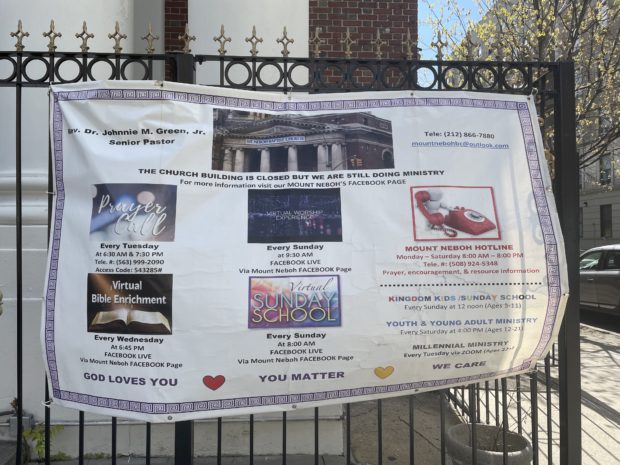
The first Sunday in March was the end of an era in the life of Mount Neboh Baptist Church in Harlem. It was the last Sunday that the church would hold virtual services, an accommodation it had offered since the beginning of the COVID-19 pandemic two years ago.
Since March 2020, the parish, at 1883 Adam Clayton Powell Boulevard, had only been open a few hours a day from Tuesdays to Fridays.
When I tuned in for the final virtual lessons at 8 a.m. on Sunday, I watched people pop into the Zoom and Facebook Live call one by one, smiling at each other and dropping familiar good morning messages in the chat.
But instead of celebrating the end of an era or speculating what it would be like to gather in person once again, the online conversation was all about justice.
“Does God pervert justice?” asked the Reverend Gerforne Johnson.
Blank stares from behind screens left Johnson bewildered.
“Did I go on mute?” she asked.
I didn’t know enough about God to answer her question. But as I learned later in the virtual Sunday service, even Christians aren’t meant to always know God’s will.
The Sunday school, part of the church’s Black History Month teaching series, would be about the misunderstanding of God’s justice, taught through the story of Bildad and Job from Job 2:11.
“Can someone highlight what is one of the biggest injustices we face as people of color?” asked Minister Maya Clarke for the adults of Bible Study group three’s icebreaker prompt.
Echoes of “voting rights” “job discrimination” and “racism” flooded the unmuted crowd of fifteen.
From overlapping voices emerged the answer Clarke was looking for: police brutality.
“Too many innocent women and men of color are being killed or assaulted at the hands of police officers,” she said. Her use of the present tense made me realize this lesson wouldn’t only be about biblical history. Black churches in America have been forced to reckon with external social and political injustices since their inception.
Before sympathy or condolences are offered to those killed by law enforcement, Clarke continues, the criminal past of Black victims is often used to purport an explanation for why they landed in the position they did. In other words, Black victims are blamed far more than White victims, as if their past transgressions justified their deaths.
“Do you ever find yourself victim-blaming?”
Nobody wanted to answer this one, perhaps afraid to show that they had ever acted in judgment.
“With all things, God's justice is always fair despite what it might look like.”
Bildad was a Shuhite, from the nomadic tribe of southern Palestine. He had been placed by God in Job’s life after Job had lost his children because of their sins– a test of Job’s faith. Bildad told Job that all of the negative events in his life were a punishment for his sins, on the premise that the righteous would never suffer.
But Bildad was wrong, Johnson said. He assumed he knew what God was thinking.
“Do you blame God for things that you don’t understand?”
A woman piped up from the boxed congregation. “Yes, I blamed God when my Grandma passed, because I didn’t understand why He would do this to the only person I knew who lived exactly by His word.”
“Only God knows why bad things happen to good people,” replied Johnson. I wondered if the woman was satisfied with her answer.
Sister Shirley Monroe seemed as though she had been pondering a question during the entire Bible Study, and was itching to pose it to the group.
“I just wanted to know why people say it was God’s will if someone gets killed in the streets,” she said. “Was that really God doing that?”
A tonal shift among the crowd indicated that questioning God’s motives behind human suffering was a difficult and heavy topic to approach.
The senior pastor, the Rev. Dr. Johnnie M. Green Jr. spoke up from a moving vehicle to answer Monroe’s query.
“God doesn’t order a hit on somebody’s life,” he said. “But a person who dies from street violence may often be reaping the seeds they’ve sown.”
Wasn’t this victim-blaming? I was unsure how the pastor had understood the lesson in such a different way than I had, but he doubled down in his next statement.
“God allows certain things to happen and we have to accept it as the grand scheme of things. Sometimes people bring it on themselves.”
The pastor’s words felt like a sharp detour from today’s message. I looked at the faces of the churchgoers to see if anyone felt differently about the question, but they remained expressionless, maybe to say that the head pastor had the final call.
I wish I knew how God put His plans in action. I wish I knew why bad things happen to good people. Was everyone else truly okay with not knowing? ![]()
Violence on the streets of New York has continuously caused suffering in the Black community, and that suffering has led to a collective grief. But in that grief, for believers to accept their fate as players in God’s long game, is something that fascinates me about faith. Deep down, they must trust that everything happens for a reason they might never understand. I realized the theme of today’s lesson was about control– how Christians must grapple with the things out of their control, and how God’s omnipotent control is one of Christianity’s great mysteries.
Palm Sunday on a Christian Commune
ULSTER PARK, N.Y. -- Founded in 1920’s Germany, the Bruderhof (translated to “place of brothers”) is an Anabaptist Christian movement. Among other faith principles, the Bruderhof movement emphasizes pacifism, common ownership, adult baptism and evangelism. The Bruderhof has 26 settlements all over the world - 17 of which are in the United States - and all are organized around the customs in a book written and published by members of the community, Foundations of Our Faith and Calling.
On Palm Sunday, our class's reporters spent the holiday among one of the Bruderhof’s larger settlements, listening to their members' stories and seeking to break down barriers and understand this century-old religious crusade.
Scroll through the photos below for a glimpse of the day.
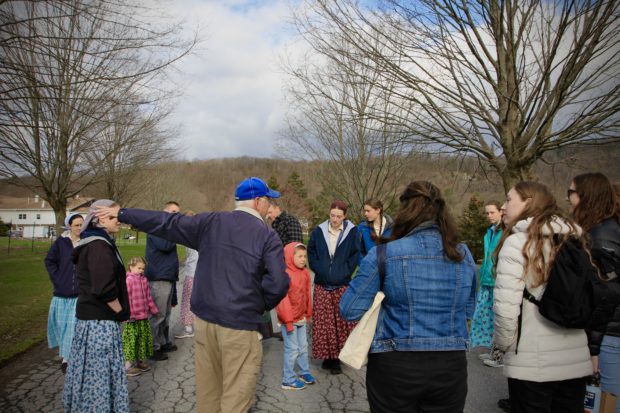
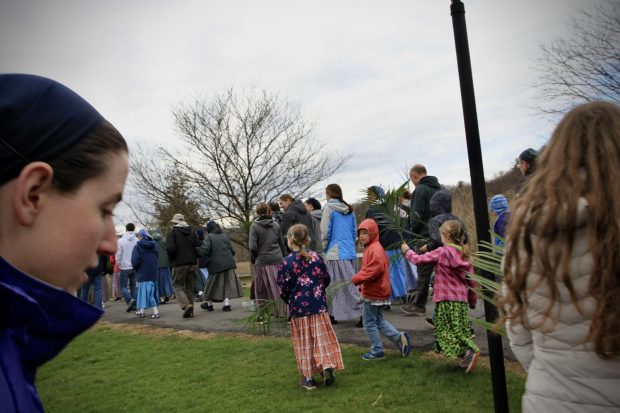
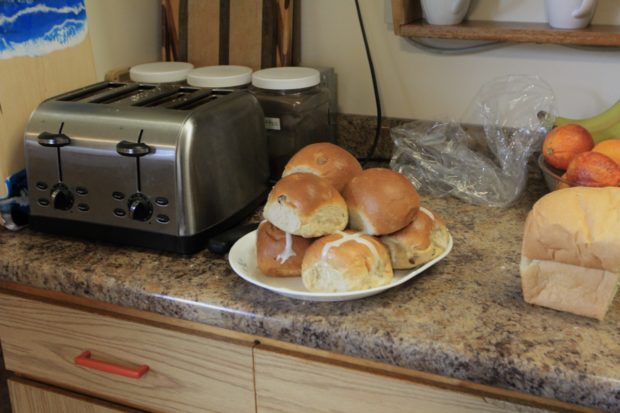
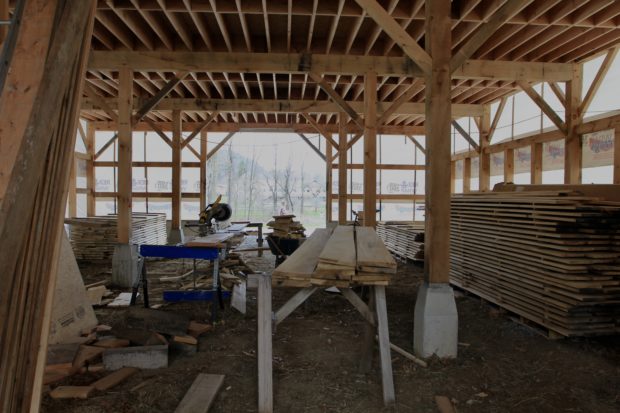
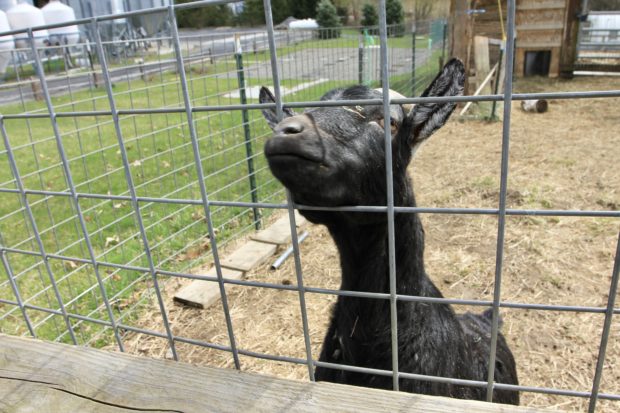
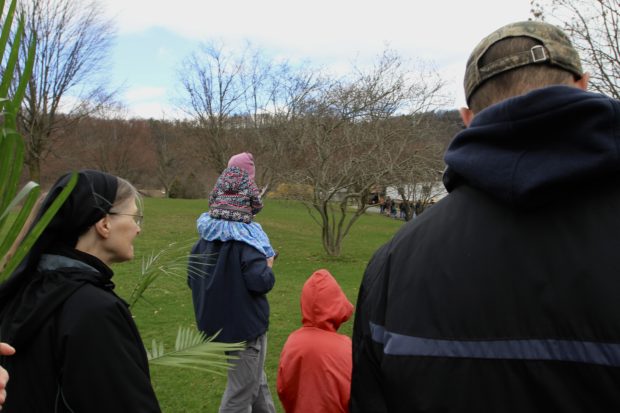
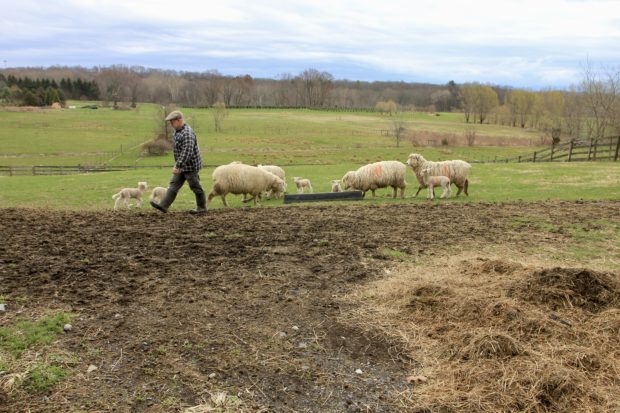
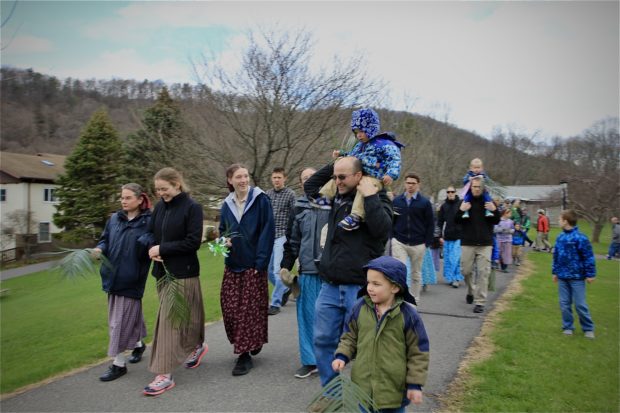
All photos by Riley Farrell, April 22.
Anxious East Village Community Prays for Relatives Back Home in Ukraine
Among the worshipers at All Saints Ukrainian Orthodox Church in Manhattan on Sunday, Tetiana Geletei prayed fervently for her father.
Geletei’s whole family is in Ukraine, where her father has been called by the Ukrainian army to fight the Russian invasion. “I cannot connect to him,” she said. “I don’t know where he is now. Is he safe?” Her pitch rose as she voiced her last worry: “If he has something to eat at all.”
At the service, Pastor Vitaliy Pavlykivsky urged congregants to pray for Ukraine and to donate money to support the Ukrainian army. The church is located at 206 East 11th Street in the East Village.
A flier on a table near the prayer candles for sale at the church’s entrance listed a bank account and routing number for donations. “Ukrainian National Federal Credit Union has open account: ‘Help Ukraine’ for the Armed forces of Ukraine. Collected funds will be wired every day to support Ukraine,” it read.
At the end of the formal part of the service, when Pavlykivsky had blessed each of the worshippers individually, Iryna Rusyn, 22, asked where she could donate money to support the army. She’d brought cash with her.
Rusyn had spent more than an hour traveling to the church by train from Queens, she told me outside afterwards. She doesn’t have time to make the journey every Sunday. In fact, she’d only been to All Saints once before. But she needed to be there this week.
“I felt that I needed to pray for my country, for my people,” she said on the church steps, hands stuffed into the pockets of her long black faux fur coat. Despite the cold, she’d made plans to meet up with a friend, a fellow Ukrainian, to go to a rally in support of their homeland.
After she had left, most people still lingered in the church. “Because of this event, of course they pray a bit longer now,” she explained.
Inside, children ran from side to side along the back aisle and bounded up and down the stairs to the balcony where some of their mothers were singing in the choir. Four kids wore the colors of the Ukrainian flag, which flew outside the church door.
The mood among the adults was somber and anxious. One woman wiped her eyes repeatedly during prayers. She hastily stepped outside twice to take calls on her cell phone, pressing it to her ear before she’d even reached the door.
Geletei, 30, a human resources coordinator, is here in the United States by herself. She described the how church’s atmosphere felt changed: “It’s different because people are hurt.”
The president of the church, Oleh Mykulynskyy, had left New York for Ukraine that morning, Geletei said.
“He served [the] Ukrainian army before he came to the United States. So he felt like he needs to go back and try to help,” Geletei said.
As the whole church prayed for Mykulynskyy, his wife sang upstairs with the choir, as she does every Sunday.
“When we found out that he left, half of the choir was crying,” Geletei said.
Rusyn was not the only person who came to support the church community because of the ongoing crisis. Pavlykivsky greeted a small group of Georgians in English and thanked them for their prayers and support, and a young woman named Samantha whose grandparents had belonged to the church after they had immigrated from Ukraine visited for the first time. But for members, being together was emotionally intense.
“It’s really hard to be here. It’s really hard,” Geletei said. “Because, you know, you can feel the pain.”
“Praying helps,” Geletei said. “And all this long prayer at the end, it was specifically regarding the war. So we were praying for stopping the war, we were praying for strength for Ukrainians.”

